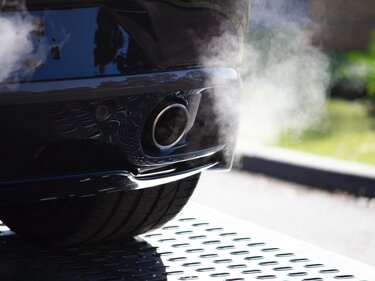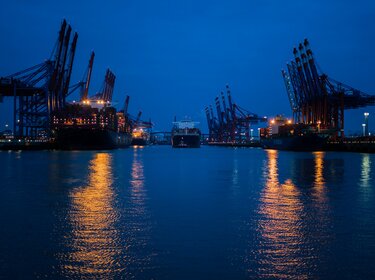Berlin, 18 April 2024 – The TÜV Association has published its political recommendations for the next legislative period ahead of the hot phase of the European election campaign. "The European Union continues to face major challenges in terms of climate protection, digitalisation and global competitiveness," said Dr Joachim Bühler, CEO of the TÜV Association. "Europe must become a lead market for green and digital technologies in order to promote economic growth and ensure social justice in the member states." The TÜV Association believes that slowing down or even reversing the ongoing transition is the wrong approach. Initiatives that have already been launched, including for greater energy efficiency, the circular economy and cybersecurity, must be continued and the AI Act must be implemented as unbureaucratically as possible. Bühler: "Jobs, investments and value chains could disappear otherwise and the EU become dependent on third countries."
In addition to economic policy issues, the attention is shifting even more strongly to security and defence policy. "We need a turning point not only in defence policy, but also in cybersecurity policy. The EU is not on a par with the USA in this area, for example," said Bühler. Further political initiatives are needed for this. "A serious threat to European integration is the rise of right-wing populism," said Bühler. "In Germany, the AfD is running with a staunchly anti-EU, nationalist and racist agenda that jeopardises our economic prosperity and is increasingly dividing our democratic society." The "abolition of all climate protection laws" called for by the AfD in its election manifesto denies the climate crisis and endangers the well-being of EU citizens and future generations. Bühler: "We must use our voice to protect the free and democratic basic order from attacks from the far right."
DRIVING FORWARD THE ENERGY TRANSITION CONSISTENTLY
The TÜV Association believes that the energy transition must be consistently driven forward at European level. This requires a harmonised legal framework and higher investment in renewable energies. The establishment of an infrastructure for green hydrogen and the development of modern battery technologies, innovative wind turbines or processes for the capture and storage of carbon dioxide (CCS/CCU) should be driven forward more quickly. "The promise of quality 'Made in Europe' must be ensured through harmonised legislation, uniform standards and risk-adequate certification procedures", said Bühler.
In addition to wind and solar energy, geothermal energy offers great potential for energy supply. A strategy with specific targets must be developed for this. Europe also needs a competitive hydrogen market. "Safety is the prerequisite for trust in H2 technologies," said Bühler. "A safe and reliable hydrogen infrastructure prevents environmental damage, minimises costs and contributes to economic efficiency." Independent assessments are essential for this.
IMPLEMENTING THE AI ACT CONSISTENTLY – ESTABLISHING A LEADING MARKET FOR TRUSTWORTHY AI
The next steps for the AI Act are now important in order to implement the requirements in practice as efficiently and unbureaucratically as possible. "The requirements for safe AI systems and their risk classification must be further specified," emphasised Bühler. By the time the AI Act is actually applied in two years' time, all relevant stakeholders must be ready for assessment. In order to prepare small and medium-sized AI providers in particular, real-world laboratories should be set up in the member states as quickly as possible to gain practical experience. Bühler: "In Europe, we have a unique opportunity to create the world's leading market for safe and trustworthy AI!"
PROMOTING SAFE AND SUSTAINABLE MOBILITY
The mobility transition towards low-emission and climate-neutral mobility must be consistently pursued. Standardised assessment procedures for safety and environmental compatibility must be created for the vehicles of the future. A legal framework is needed for the use of mobility data to promote the common good. At the same time, the technical prerequisites must be created with the establishment of trust centres. In view of the high number of road fatalities, road safety must be improved by all available means in order to come significantly closer to 'Vision Zero'.
IMPLEMENTING EU LEGISLATION EFFICIENTLY
Efficient implementation of European requirements is a decisive factor for a successful transition. Independent assessment service providers such as the TÜV organisations relieve the burden on national authorities and support companies in their sustainable and digital transformation. Bühler: "As market players close to industry, independent assessment organisations work efficiently and can ensure compliance with the numerous legal requirements quickly and unbureaucratically."
The complete recommendations from the TÜV Association in various policy areas are available at: European elections 2024
"The future of Europe: Safe, sustainable, competitive?" This is the title of the next TÜV MeetUp with the Spitzenkandidaten of the German parties. In which key policy areas does Europe need to take action? How can the EU's competitiveness be maintained and improved? What does the expected shift to the right say about the mood of the people in Europe? We will discuss these and other questions with Jens Gieseke, candidate of the CDU, Terry Reintke, lead candidate of Bündnis 90/Die Grünen, René Repasi, candidate of the SPD, Martin Schirdewan, lead candidate of the Die Linke, Marie-Agnes Strack-Zimmermann, lead candidate of the FDP, and Michael Fübi, Vice President of the TÜV Association and CEO of TÜV Rheinland. The TÜV MeetUp will take place online on 16 May 2024 from 9:00 - 10:00 am in German language. Further information and registration at: "TÜV MeetUp „Zukunft Europa: Sicher, nachhaltig, wettbewerbsfähig?




